Xiao Yu Ruan (阮小玉) was born in Shanghai in 1935 in a large family. Her great-grandfather had businesses in Shanghai, Guangzhou and Honolulu, which were managed by his three sons (Ms Ruan’s grandfather and her grand-uncles). Ms Ruan’s father was a secretary at the Customs Department in Shanghai and was fluent in both English and Chinese. During the Japanese invasion in 1937, the antique business of Ms Ruan’s grandfather in Shanghai was looted and suffered a significant loss. Therefore, her family decided to return to their home village in Yuanbian Chikan village (杬邊赤坎村) in the Nanlang district of Zhongshan, when Ms Ruan was four years old.
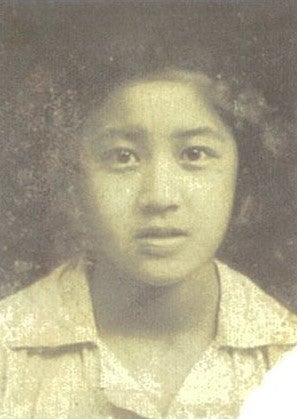
Photo of Ms Ruan when she was a child. The photo was taken in June of 1947 when she graduated from primary school (source: Just Live: Biography of Xiao Yu Ruan)
Ms Ruan studied at Yuenqu Primary School (雲衢小學)in the village, which was donated by her family. In Year 5, she learnt about the Communist Party from her teachers who were sent by the Communist soldiers from the nearby military base at Wu Gui Mountain (五桂山). Ms Ruan later joined the Youth League of the Communist Party (中國新民主主義青年團), an underground organisation when she was at secondary school. She took part in the liberation of Shekki in November 1949 and became an official of the Zhongshan Communist government afterwards.
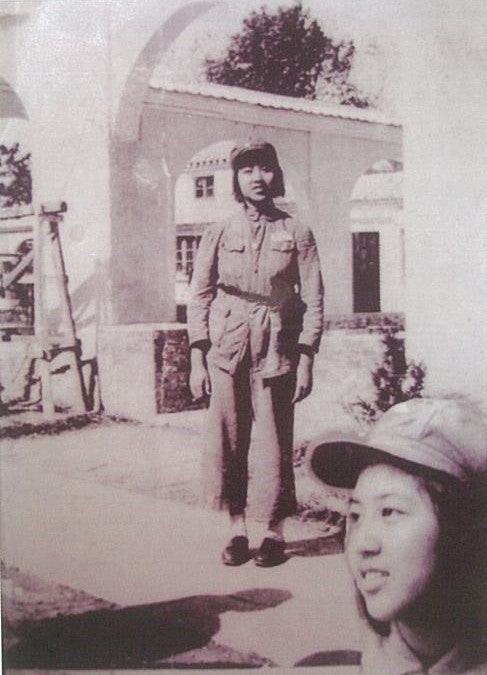
Ms Ruan joined the Youth League of the Communist Party(中國新民主主義青年團) when she was at secondary school. The photo was taken in October of 1949 before the liberation of Zhongshan. Ms Ruan was 15 years old (source: Just Live: Biography of Xiao Yu Ruan)
During the Land Reforms in China in the early 1950s, Ms Ruan’s family were classified as landlords, so she was no longer allowed to work in the government. In 1952, Ms Ruan became a school teacher at a primary school. After a short while, she was promoted to be a headteacher and later became a school principal. During the Cultural Revolution, Ms Ruan was classified as being a ‘rightist’ due to her family background and was sent to a quarry at Panyu to work as a labourer. Her job was to break down the large boulders into small rocks with a metal hammer every day. It was a tough time. At the age of 24, she became sick and malnourished, but was forbidden to return home. She felt despair and has thought of committing suicide, but eventually she let go of the negative thoughts and persisted.

Wedding photo of Ms Ruan and Mr Gao Gan Feng. The photo was taken in 1963 (source: Just Live: Biography of Xiao Yu Ruan)
After two years of hard labour, Ms Ruan left the quarry and got married. Her husband, Gan Feng Gao (高幹芬), was a Communist official, whose sister was a colleague of Ms Ruan at the school. They have two sons. After Ms Ruan left the quarry in 1962, she worked as a relief teacher on a casual basis. She worked very hard to support her two sons’ education. Ms Ruan’s first son Si Yuan Gao(高思遠)studied at Beijing Foreign Language University (北京外語大學) and her second son, Jan Yuan Gao (高瞻遠) studied at South China Polytechnics (華南工業學院) in Guangzhou; both got good jobs in Zhongshan after they graduated.
In the early 1990s, Ms Ruan’s eldest son decided to pursue further studies in Australia. Later, he applied for independent skilled migration and obtained approval. After he gained residency, he applied for the migration of his parents in 1993. Ms Ruan subsequently applied for the migration of her younger son, so the whole family was reunited in Australia.
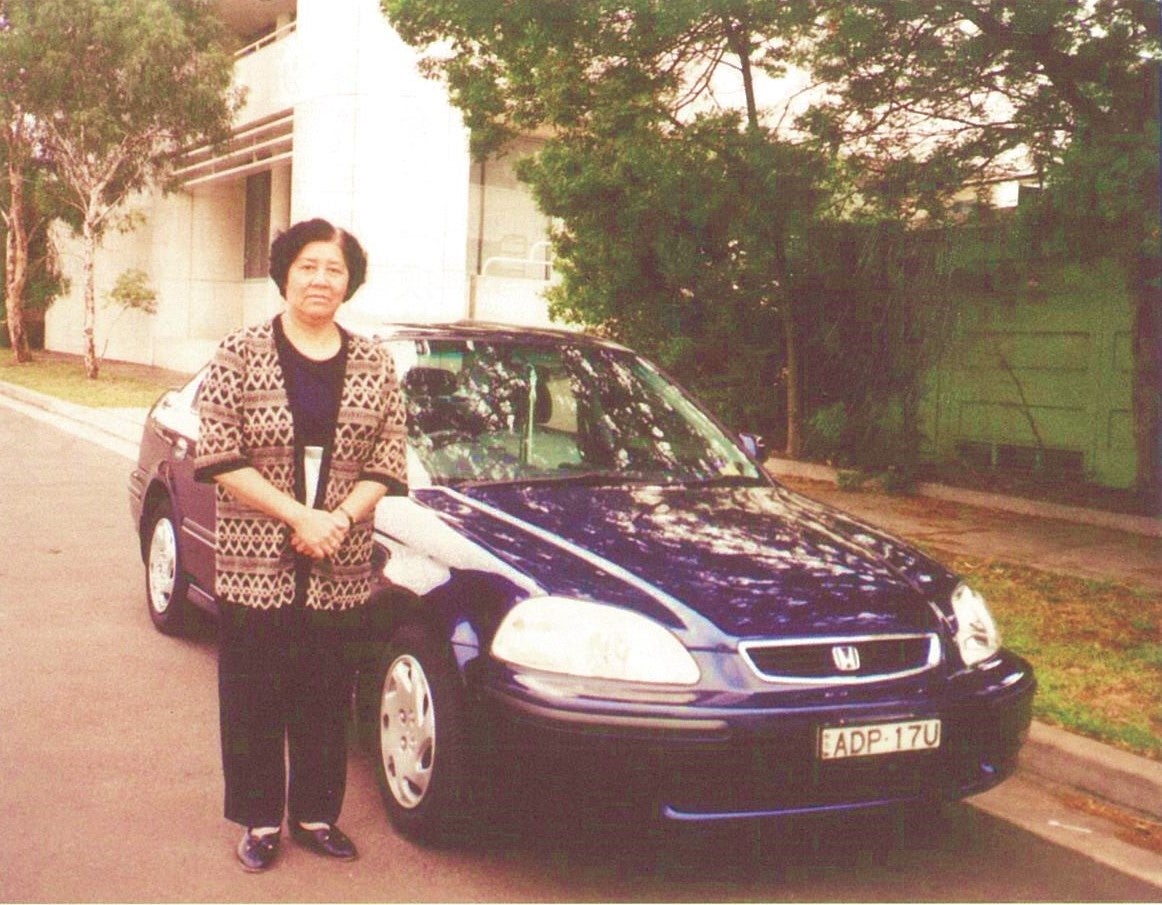
Ms Ruan and her sons bought a second-hand car in 1994 after she migrated to Sydney (Source: The Golden Sunset, The Beautiful Evening)

Ms Ruan’s family in Sydney (her two sons, daughters-in-law and grandchildren) The photo was taken in 2014 at the celebration of Ms Ruan’s 80th birthday (Source: The Golden Sunset, The Beautiful Evening)
Ms Ruan was 58 years old when she came to live in Sydney. Her two son were still studying, so she worked in different jobs to support her family by being a nanny and working at a nursing home, take away shop and a real estate agent. Her family first rented a house and later was allocated public housing in Dee Why on the Northern beaches. Ms Ruan’s husband passed away in 2000. Now at the age of 83 (in 2017), Ms Ruan is fully retired. She lives in Ryde, a suburb in Sydney’s northwest. She volunteers for the Chung Shan Society of Australia and enjoys travelling to different places, such Canada, Singapore, Fiji and China with friends.
Australia-China Connections
Ms Ruan migrated to Australia in 1993. She joined the Chung Shan Society in Sydney in 1994 and has been serving in the Society since then. As of 2017 she is the Executive Vice-President of the Chung Shan Society and has been assisting in organising various activities in the Society to bring together and strengthen the bonds of people from Zhongshan in Sydney.

Ms Ruan (1st right) has been a member of the Sydney Chung Shan Society since 1994, and has served as its Executive Vice-President. The photo was taken in 2016 when a group of government officials from Zhongshan visiting the Society in Sydney (Source: The Golden Sunset, The Beautiful Evening)

Ms Ruan led a youth group from Sydney to attend a winter camp in Zhongshan in 2017. One of the participants of the winter camp was Ms Ruan’s granddaughter Olivia (featured on the cover of Zhongshan Qiao Kan)
After her retirement, Ms Ruan has returned to Zhongshan several times a year. In 2016, she led a tour with the First Executive Vice-President of the Chung Shan Society to bring a group of teenagers who are the descendants of Zhongshanese from Sydney to attend winter camp for cultural exchanges in Zhongshan. Ms Ruan’s position in the Chinese Communist Party was reinstated in 2000 and now she is a ‘retired Communist official in overseas’ (離休幹部). She maintains good relations with the government officials in Zhongshan and has been facilitating the communication and exchanges between government officials from Zhongshan City and the Chung Shan Society in Sydney.
Ms Ruan has maintained good relations with her former colleagues and students of the schools she taught at, and has been invited to return to Zhongshan to attend school anniversary celebrations and other conferences.
Return Journey
The first time that Ms Ruan’s family returned to Zhongshan was in 2000, seven years after she migrated to Australia in 1993. When she first migrated to Australia, her family was not wealthy, so she could not afford the expensive flight tickets to go to China until 2000.
Ms Ruan’s husband had a family home in Shekki. The house was built in 1965 and is located near the city centre, close to local amenities and public transport. Ms Ruan and her husband lived there after they got married. The original house was quite big, but now the Gao family only owns a small part of the original house, while other parts of the house were run down and empty. Ms Ruan renovated her part of the house in 2015, and she stays there whenever she returns to Zhongshan.
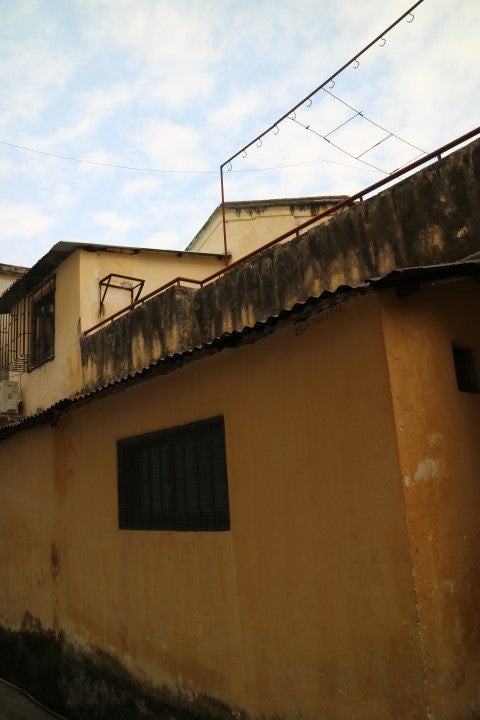
The family home of Ms Ruan’s husband in Shekki (2017)
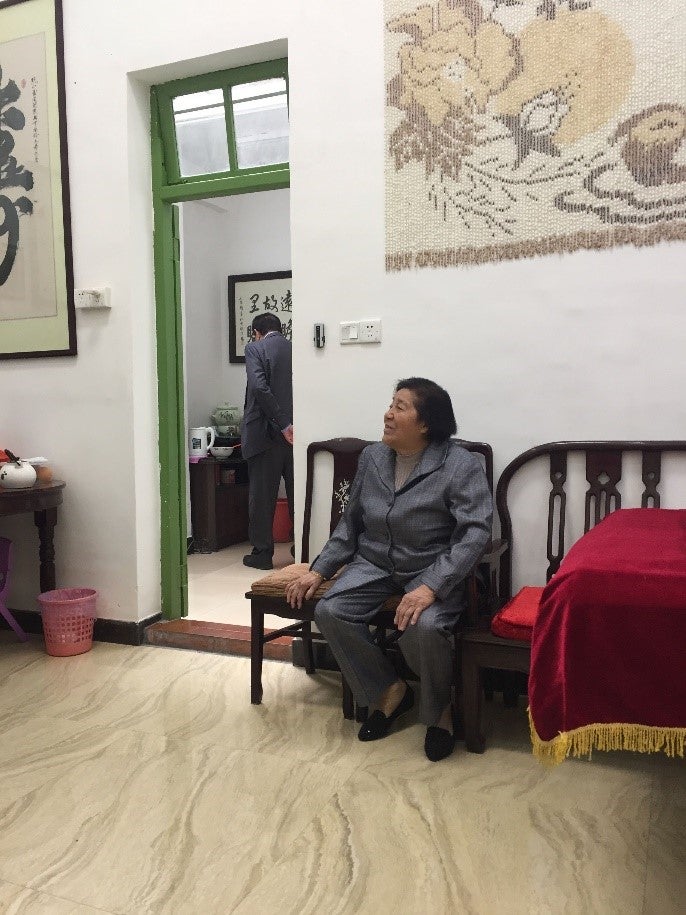
Ms Ruan inside her husband’s family home in Shekki. The house has been renovated in 2015 (2017).
Ms Ruan’s natal home is in Yuanbian Chikan village, Nanlang. The original house was over 100 years old. Originally it was a huge house: a big complex of three-four interconnected two-storey dwellings, but the upper floor was demolished, and the lower floor was divided up and given to peasants during the Land Reform. The government confiscated the house and everything inside, including the redwood furniture, were sold. The garden of the house was turned into a government primary school after 1949; now it has become a factory. The Ruan family now only owns a small part of the house. It has been passed on to the male member of the Ruan family, Associate Professor Edgar Yuen of United International College in Zhuhai (Ms Ruan’s nephew) and as of 2017, the house was leased to a tenant. The ancestral tablets of the Ruan family are still inside the house, so Ms Ruan usually comes back during Ching Ming Festival to pay respect to her ancestors.
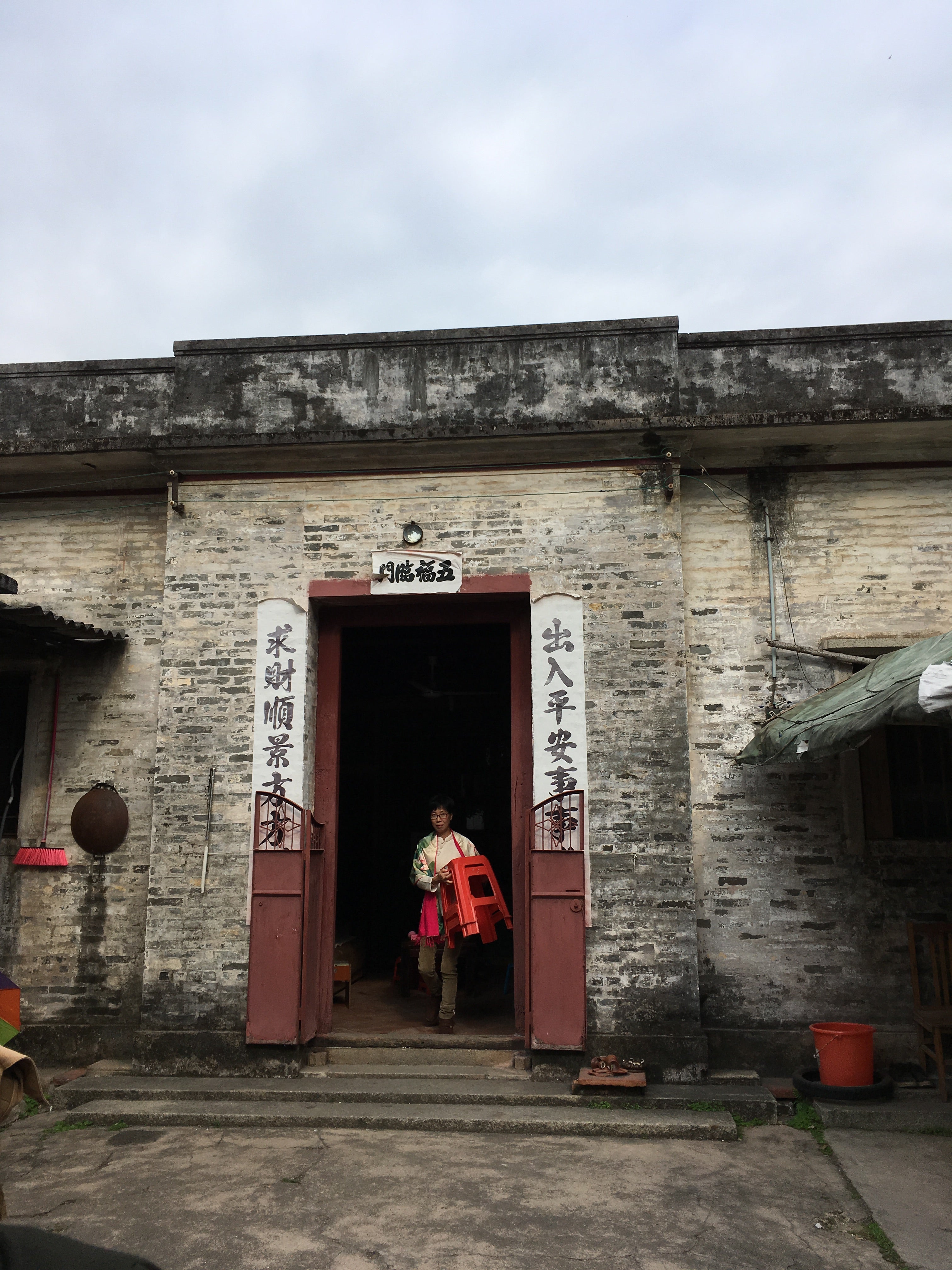
Ms Ruan's ancestral home in Nanlang (2107)
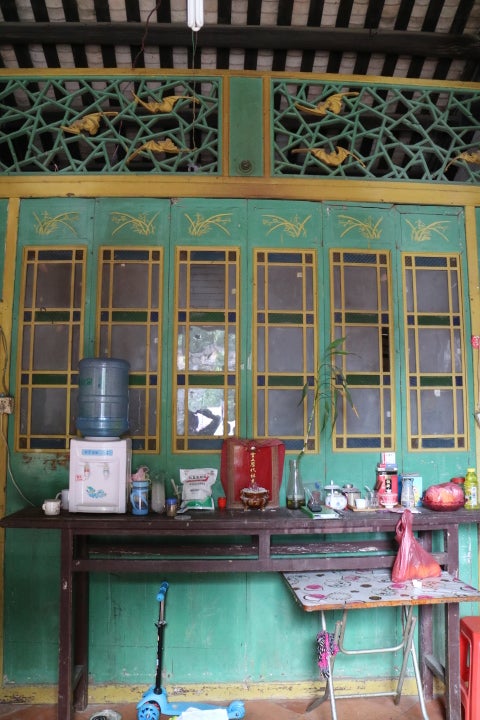
The interior of Ms Ruan's ancestral home in Nanlang (2017)
